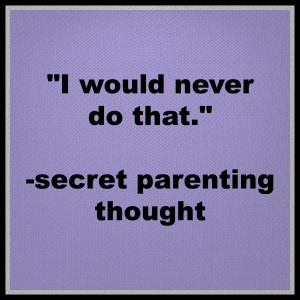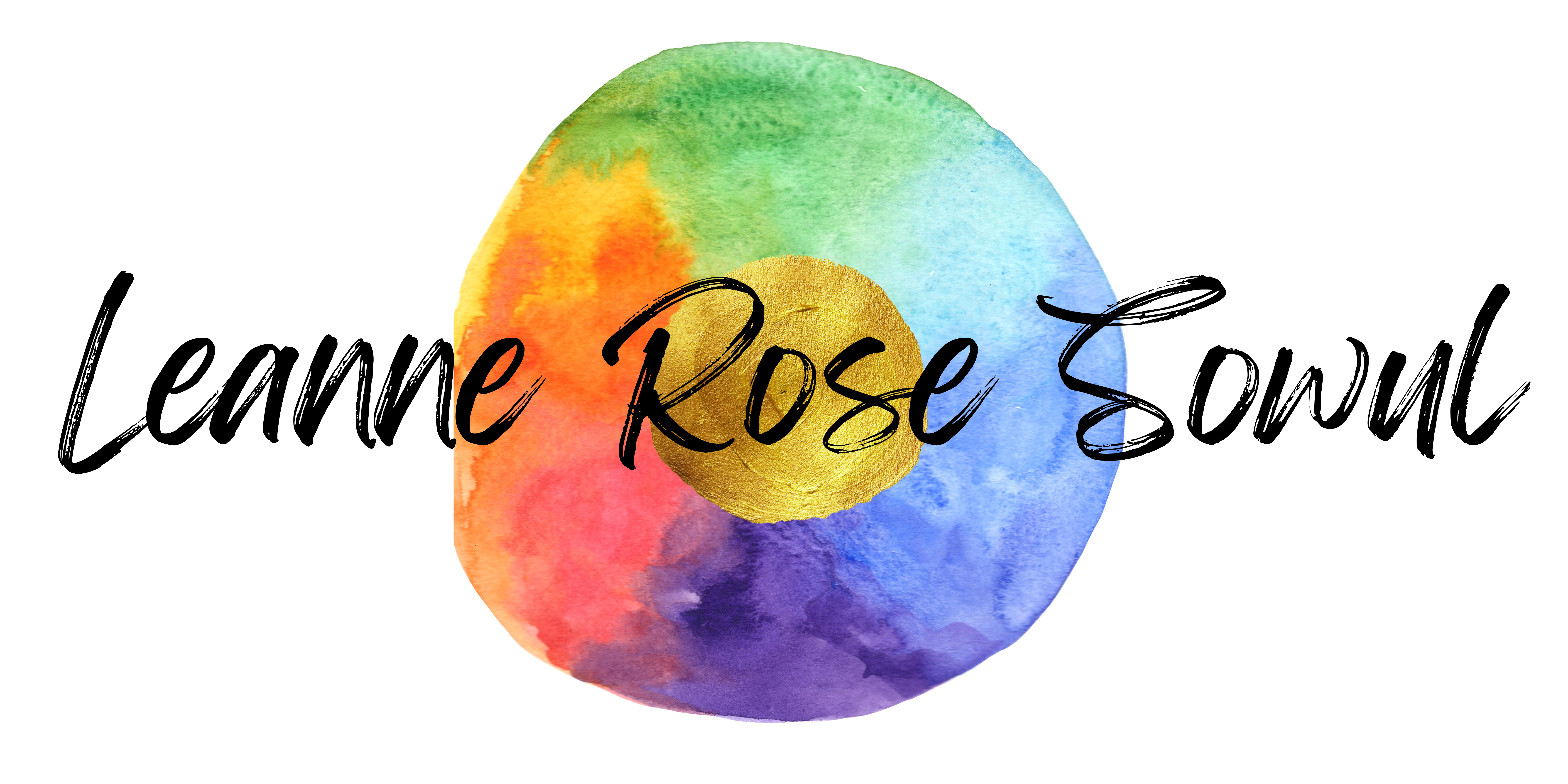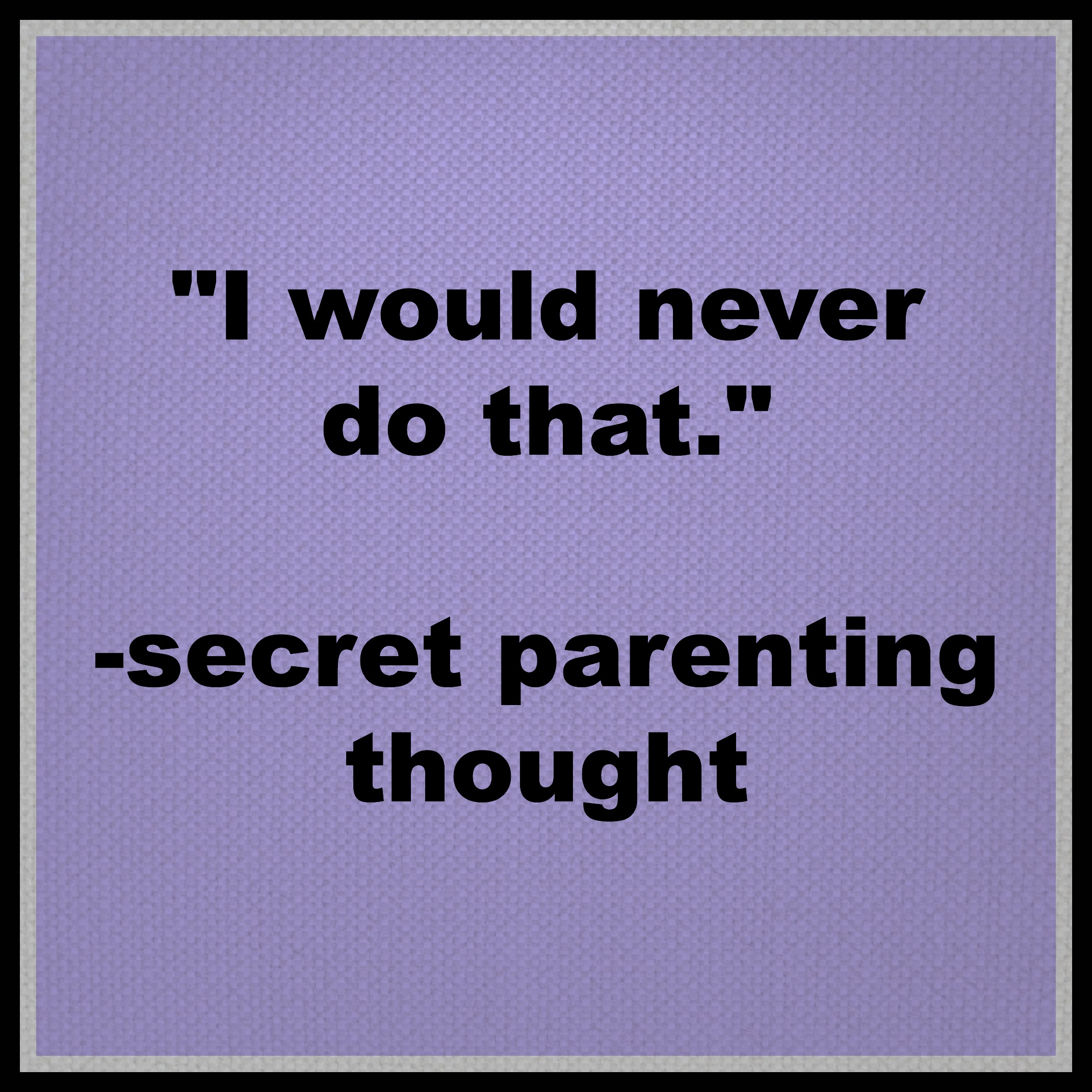This is the first post in June’s focus on parenting. 
Scenario #1: You’re walking past a hospital nursery and you peek in to look at the adorable newborns. You see that one of them has a pacifier in her mouth. You think, “A pacifier when she’s only a few hours old? That might interfere with breastfeeding. I would never do that.”
Scenario #2: You overhear a mother talking about sleep training her two month-old baby. You think, “Two months is way too young. I would never do that.”
Scenario #3: You’re at a park when you see two children fighting while their mothers stand nearby. One mother runs over, separates the kids, then begins yelling and shaking her finger in front of one kid’s face until he starts to cry. The other mother doesn’t even notice- she’s too busy texting. You think, “I would never do either of those things.”
You’re pretty judgmental, aren’t you? You don’t know what any of those parents’ situations are, and you probably never will. But that doesn’t matter. What matters is, you were right to judge them.
Wait, what? Is Leanne really saying it’s good to judge other parents? I am, in fact. And here’s why.
Parenting is a gigantic job. There are a million ways to think and act on the situations your child may or may not get into. Parenting is the ultimate art, AND the ultimate science experiment. You have no idea how your attitudes and actions will affect your offspring- or if it even matters. But you do have to make choices about those attitudes and actions; even the lack of choice is a choice.
What’s more, parents are constantly training on the job. There’s no one guidebook, there’s no map, there’s nothing to help you predict the future. Some parents come into the job with more skills than others- taking care of younger siblings, perhaps, or extensive babysitting for nieces and nephews- but for the most part, we’re completely unequipped to handle being parents. And yet we’re expected to make those choices, minute after minute, situation after situation. The only people we have to learn from are the people who are going through those situations along with us. When you think, “I would never do that,” about another parent’s actions, you’re helping yourself make parenting choices. You’re taking your own temperature, gauging your own gut feelings, so that you know how to act in the future. It has nothing to do with the person you’re judging; you’re constructing a future road map for yourself.
Take it from me. I’m an INFJ. (That’s a Myers-Briggs personality type. We INFJ’s- Introversion, iNtuition, Feeling, Judging- are very rare; from what I’ve read, anything from under 1% to 3% of the population.) I’m hard-wired to judge people and situations. That’s how I learn. Contrary to the examples above, judging does not have to have a negative connotation, though it often gets one. You can judge a person as stylish and use that information to help you the next time you shop. You can judge a person as patient and think of his example the next time your temper rises. But whether the thought is phrased in the negative or positive, judging is still a learning tool. It helps you figure out what you want from life, and who you want to be. As parents, with the near-impossible job of raising a child, we need that tool.
So the next time you catch yourself thinking, “I would never do that,” give yourself a break on the guilt. As long as you’re not voicing your newly-formed opinion and hurting someone’s feelings, it’s okay to encourage your little inner judge. She’s helping you become the kind of parent you’ll one day be proud of.
Tomorrow, stay tuned for a guest post (not on parenting) by American Scar Stories writer Jenny Cutler Lopez!


3 thoughts on “It’s OK to Judge Parents”